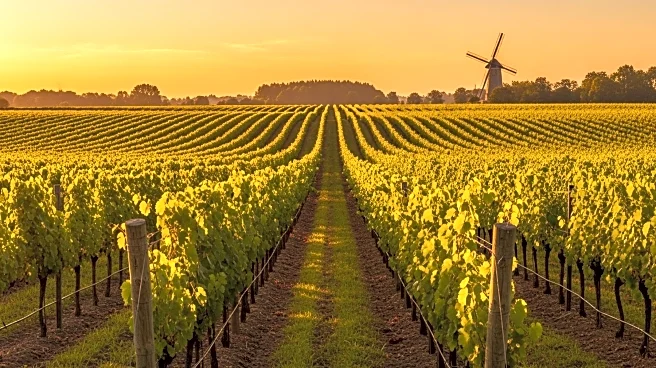What's Happening?
The wine industry is facing significant challenges due to climate change, with up to 70% of current wine-producing regions at risk if global temperatures rise by more than 2°C. In response, wineries are adopting sustainable practices, such as using organic grapes, regenerative viticulture, and renewable energy. These measures aim to improve soil health, reduce carbon emissions, and adapt to changing climate conditions. The industry is also exploring innovative solutions like lighter wine bottles and carbon capture technologies to further mitigate environmental impact.
Why It's Important?
The adaptation of the wine industry to climate change serves as a model for other sectors facing similar challenges. By prioritizing sustainability, wineries are not only preserving their craft but also contributing to broader environmental goals. This shift highlights the importance of collective action and innovation in addressing climate change. As consumers become more environmentally conscious, the demand for sustainable products is likely to increase, encouraging more industries to adopt eco-friendly practices. The wine industry's efforts demonstrate the potential for businesses to drive positive change and influence consumer behavior.
What's Next?
The wine industry must continue to innovate and collaborate to address the ongoing challenges posed by climate change. This includes expanding the use of renewable energy, enhancing biodiversity in vineyards, and reducing reliance on fossil fuels. Additionally, forming alliances like the International Wineries for Climate Action can accelerate the decarbonization of the industry. As the sector evolves, it will be crucial to engage consumers and policymakers in supporting sustainable practices and fostering a more resilient future for wine production.









